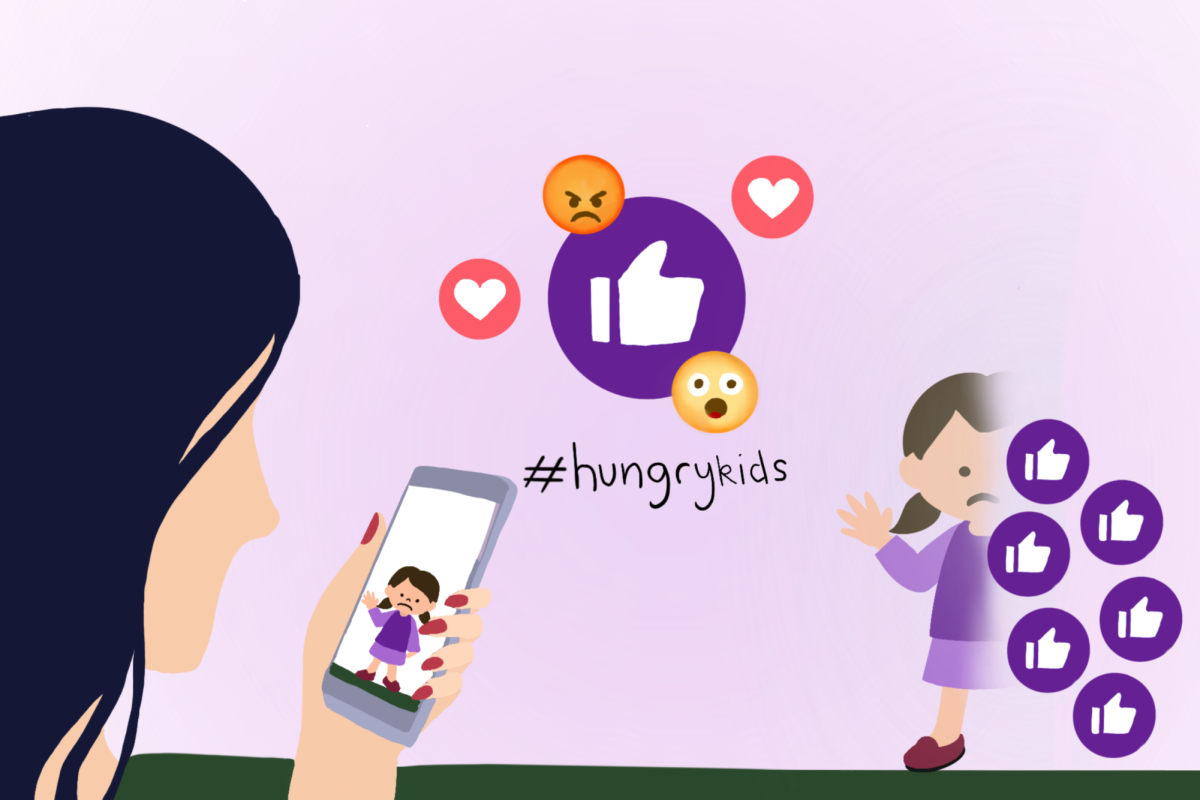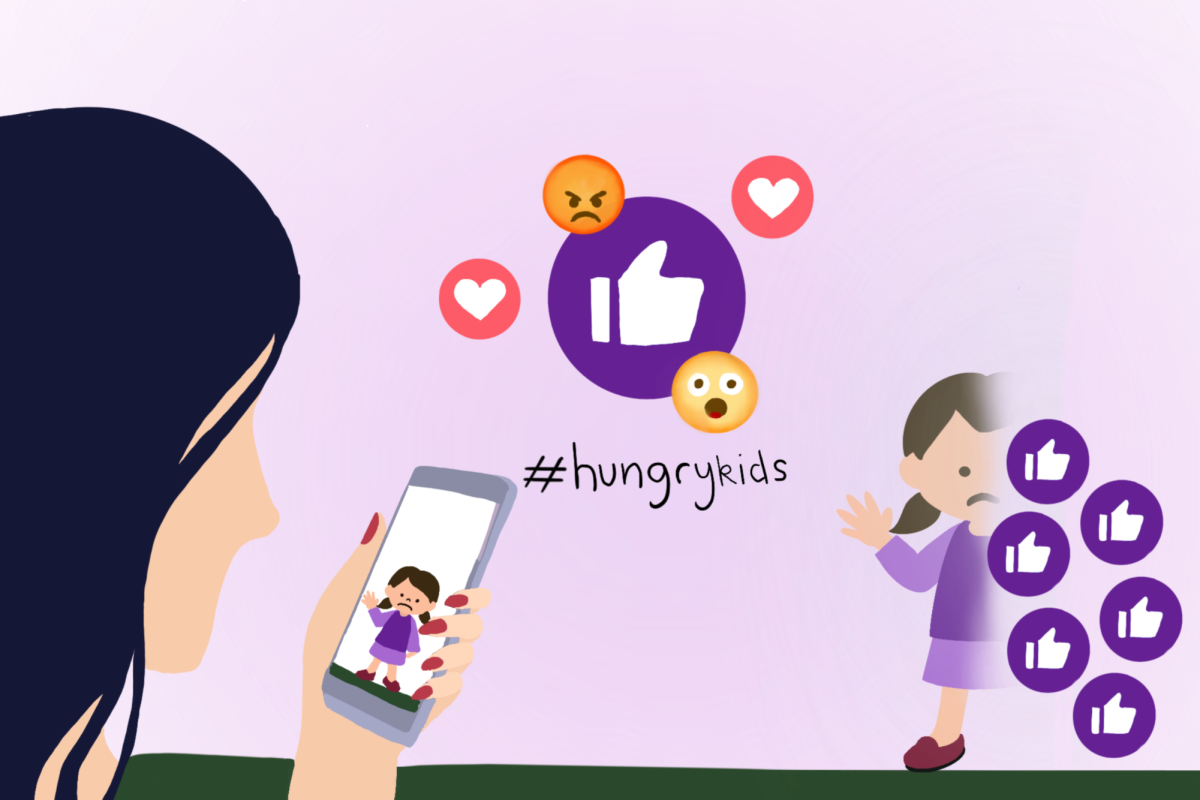Behind the podium of the United Nations Headquarters stands a proud ambassador of a climate change organization. She advocates for people to be more aware of their actions and how they may affect future generations. At the end of the event, her publicist tells her to take a proud picture on the stage before boarding her private jet. She stands with a cigarette in hand and climate change out of mind. Almost instantaneously, a photo of the event is posted on Instagram and Twitter, and thousands of people like and comment on the post with praises. Upon closer examination, this celebrity exercises a dangerous facade known as performative activism — activism done to increase one’s social standing through the impression of supporting a cause.
At first glance, acts like these are often seen as kind gestures in which a public figure uses their leverage and resources to help those in need. This show of selflessness is yet another addition to a carefully curated public image for more likes, fans and fame or to avoid criticism. Celebrities are better off maintaining silence than posting shallow or misleading support to appear socially aware and relatable to their non-elite audience. If a celebrity truly cares about an issue, they should use their fame to bring awareness to the cause, instead of using the cause to fuel their popularity, and educate themselves before speaking up. If they do not do so, their actions may be detrimental to the actual issues by potentially diverting attention from the problem to the celebrities themselves and oversimplifying complex issues.
Many public figures pretend to be activists for the sake of maintaining a good reputation among their followers, pushing a brand image or staying relevant to a wider audience. They appear to invest their time and resources into various issues but in reality, do very little to cause concrete change. In some cases, the actions of these celebrities do not align with the causes they claim to advocate for.
“It is when you act like you’re standing up for a cause, but you’re doing it mainly to get attention for your platform,” senior and Intersections President Ava Roohipour said. “When they know something wrong is going on, a lot of influencers, rather than donating or doing a small meaningful gesture, they just make a video on it.”
The term “performative activism” peaked after the death of George Floyd in 2020 when multiple social media influencers overused the Black Lives Matter hashtag without fully educating themselves on the issue or understanding how it affects different communities. Similarly, on Black Out Tuesday, many influencers posted a black square on Instagram, reducing the Black Lives Matter movements to a single hashtag and failing to address the original purpose of remaining offline.. Performative activism reduces complex issues to simplified symbols or phrases, focusing on surface-level gestures or symbolic actions without addressing the underlying complexities.
“Celebrities who pretend to be activists and use hashtags regarding a specific issue make it trendy,” English teacher Anna Kirsh said. “It makes people join a side because they think that’s the right thing to do without understanding it. It just minimizes the importance of the situation if people don’t understand the whole of it.”
Not only does performative activism oversimplify issues, but it can also result in harmful generalizations or stereotypes. In singer Sia’s film, “Music,” she depicts the story of a non-verbal autistic girl in a film she called “a love letter to the autism community.” Despite the film focusing on a neurodivergent girl, Sia chose to cast Maddie Ziegler, a popular neurotypical dancer, as the lead role, citing Ziegler as her muse. Moreover, multiple autistic actors asked to participate in the film to bring more awareness, but Sia turned them down. By overlooking concerns raised by the autism community and deliberately choosing not to cast any neurodivergent actors, Sia not only undermined the authenticity of her so-called support for the community, but also inaccurately represented neurodivergent individuals
“Performative activism can facilitate the creation of harmful stereotypes in several ways,” school psychologist Dr. Brittany Stevens said. “It dilutes the actual struggles of a marginalized community and creates superficial understandings, reinforcing stereotypes, oversimplifying issues and ignoring the intersectionality of an issue. It is so important for activism to be informed, genuine and focused on creating meaningful change, rather than seeking attention or validation.”
Celebrities can also be blatantly hypocritical. For instance, many celebrities advocate for climate change and claim that people should make efforts to go green. However, these are the same celebrities who own belongings such as private jets that emit critically harmful excess pollutants. Priyanka Chopra partnered with Breathe Free, an initiative focused on destigmatizing and bringing awareness to asthma, to advise her fans against using firecrackers when celebrating Diwali due to the harmful chemicals and pollution released. Yet, following this, she went on to use unnecessary firecrackers at her own wedding, which she was called out for on a variety of social media platforms including Twitter and Instagram.
Personal character for celebrities has become increasingly important to fans as social media blurs the lines between fan and idol, with the celebrities one chooses to follow reflecting personal ideals. Because celebrities have such influential platforms, fans often expect celebrities to use their platform to spread awareness.It’s important to acknowledge that celebrities should not feel compelled to post and pretend to be activists even though there is a huge underlying pressure to do so. Authenticity should be prioritized, and the focus should be on genuine participation in the causes that resonate with the celebrity’s values and beliefs. Public figures should be able to advocate for the issues they genuinely care about rather than following what their fans think is important. By doing so, celebrities can better educate themselves and contribute positively to the causes they support.
“Followers tend to mimic the celebrities they admire,” Stevens said. “If we see celebrities engaging in performative activism, we are receiving a message that this type of support is sufficient in order to be admired. On the other hand, by celebrities educating themselves and genuinely engaging in an issue, followers will likely mimic that and be more supportive of the cause.”
If a celebrity cares and is educated on an important issue, then their advocacy and support can be significant in initiating positive change. Therefore, celebrities must be supportive of the causes they are sincere about. Not only can they post to raise awareness among their followers, but they can also donate, go on field missions or partner with formal organizations. For example, Angelina Jolie, a human rights activist, dedicated 20 years to the United Nations High Commissioner for Refugees, using her platform to build awareness and support for refugees. However, she did more than just post for her own publicity; she carried out more than 60 field missions to protect the rights and safety of displaced individuals.
However, celebrities also shouldn’t feel pressured to be activists for campaigns they do not know or care to advocate for — that simply leads to misrepresentations within the movement. The fame and the likes should not be so prioritized that it reduces real-life causes to a single hashtag. Rather, public figures should use their fame and their platforms to increase awareness and motivate others to speak up.
“Bringing awareness to a cause is super helpful,” Kirsh said. “But also don’t speak about things that you don’t understand. Celebrities should educate themselves on the issue to avoid spreading misinformation. Misinformation is often weaved into performative activism, and that’s what makes it so dangerous.”











































































